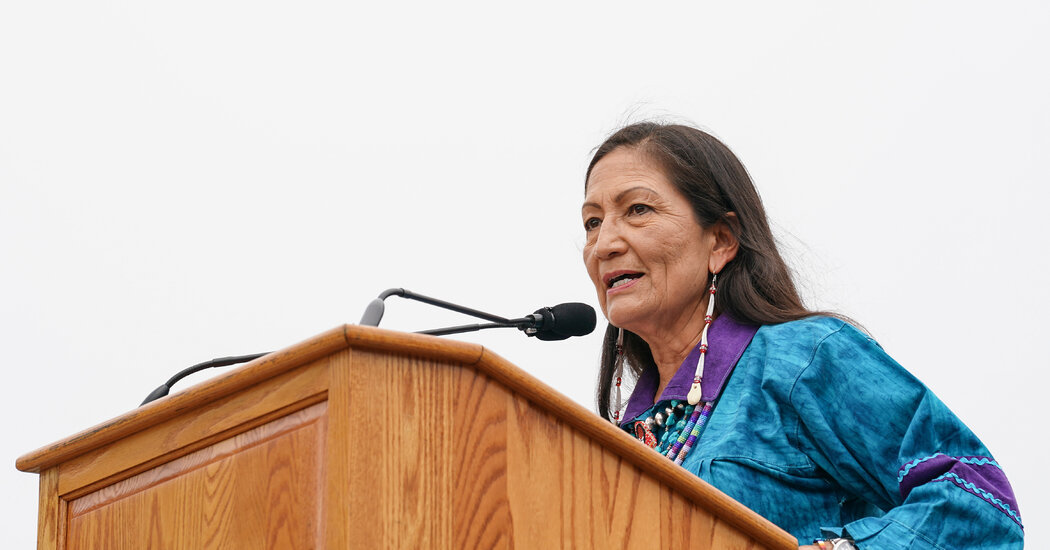The measure elevates conservation in a number of ways, including by creating new leases for the restoration of degraded areas.
The Biden administration on Thursday announced a new federal rule for the nation’s sprawling public lands that puts conservation on par with activities like grazing, energy development and mining.
The new rule relates to areas overseen by the Bureau of Land Management, some 245 million acres that make up a tenth of the country’s land, mainly in the West. It elevates conservation in a number of ways, including by creating two new kinds of leases for the restoration of degraded lands and for offsetting environmental damage.
These lands have long been managed for “multiple uses,” including cattle ranching, drilling and recreation. But some of those activities, combined with new pressures from wildfires and drought, both fueled by climate change, have taken a toll.
“As stewards of America’s public lands, the Interior Department takes seriously our role in helping bolster landscape resilience in the face of worsening climate impacts,” Interior Secretary Deb Haaland said in a statement. “Today’s final rule helps restore balance to our public lands as we continue using the best-available science to restore habitats, guide strategic and responsible development, and sustain our public lands for generations to come.”
Last year, congressional Republicans and other opponents reacted with outrage to an earlier version of the lease idea, accusing the Biden administration of a land-grab and of putting national security in jeopardy by allowing foreign entities to tie up land that could have critical economic and geopolitical uses like mineral extraction. The final rule clarifies that leases will be issued only to qualified groups, will not be issued to foreigners and will not be issued when incompatible with existing uses.
Nevertheless, backlash came quickly.
“With this rule, President Biden is allowing federal bureaucrats to destroy our way of life,” Senator John Barrasso of Wyoming said in a statement. He vowed to introduce a Congressional Review Act resolution “to repeal this outrageous rule.”
